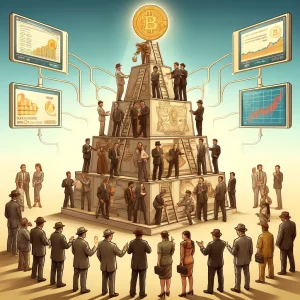China can’t regulate virtual worlds, why?
3 min readTable of Contents
China’s crackdown on cryptocurrencies has reached new intensity in recent weeks. The People’s Bank of China (PBOC) has previously decided to ban financial institutions from trading virtual currencies, including BTC and ETH. Recently, PBOC has tried to stop cryptocurrency transactions and their extraction altogether.
Blockchain-based virtual worlds
Virtual worlds, such as Next Earth, are powered by blockchain technology, specifically using nonfungible tokens (NFTs), which represent land ownership within a digital replica of the Earth. These token economies have been designed specifically to avoid censorship and allow users to communicate freely online without fear of surveillance or repression by governments or corporations.
In fact, Next Earth is becoming one of the most popular virtual worlds, selling virtual real estate for nearly $ 2 million. In this sense, it is easy to see why China wants to ban such virtual worlds. If it cannot control them directly, then it certainly does not want its citizens to communicate with individuals and organizations that exist completely out of government control.
Pros of decentralized metaverse
There are several different types of metaverse: centralized (such as Facebook), hybrid (where some aspects are centralized while others are decentralized) and fully decentralized (such as Next Earth).
Given that governments have some control over hybrid metaverse and almost full control over centralized metaverse, decentralized metaverse is clearly the future for free cyber citizens.
Next Earth is a fully decentralized metaverse using blockchain technology. This means that it is not owned or operated by any single entity – instead it runs on blockchain smart contracts based on peer-to-peer, where users own their NFT assets.
As a result, each participant has the same rights within the metaverse and can communicate freely with other users without fear of censorship or supervision. This makes it ideal for NFT enthusiasts and cryptocurrency users who want to act freely without having to worry about being exposed by repressive regimes or corporations that could monitor their activities.
Disadvantages of centralized metaverse
The biggest disadvantage of a centralized metaverse is that they allow a single entity, usually a corporation or government, to monopolize control of the world. This means that all content in such worlds is ultimately the responsibility of their administrators and as such can be arbitrarily regulated or censored.
The decentralized metaverse is much more open because no one controls it. This means that anyone can create content in them, but it also means that no person or entity has the power to completely restrict access to these worlds. Governments or corporations do not have the ability to censor such worlds because they are not controlled by any central authority.
For this reason, decentralized metaverse tends to be a more trustworthy environment. China may try to regulate the virtual world as it pleases, but if it is based on a distributed, decentralized blockchain, it has no checkpoint. Next Earth as such is a decentralized metaverse and allows anyone and anywhere free access to future cyberspace.
Conclusion
The effort of governments to control something they cannot control is likely to stop. Are you part of a decentralized metaverse?






